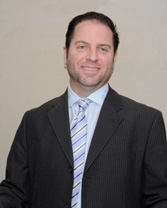Message from the Dean
Aaron R. S. Lorenz, PhD.
 The 21st century has ushered a myriad of challenges including the collapse of local and national economies, ecological disasters and political turmoil throughout the global landscape. The challenges reveal a crisis of inequalities and call for a systemic understanding of interactions between natural forces, human activities, and the community. Research has shown that our vulnerabilities to climate change, poverty, political instability and warfare are inextricably connected to the way societies organize their social, economic, legal and political institutions. We conceptualize individual and social well-being based on the study and implementation of research in social organization. The social sciences provide individuals the conceptual ability and the tools to create social conditions that promote civic engagement, social justice, equality, and prosperity. The School of Social Science and Human Services provides students with the fundamentals for the understanding of social organization. Students who graduate from the School are equipped with the necessary tool kit to continue their professional development in the private, civic society, and the public sector. Their ability to reason, think critically, create and execute well-developed plans prepares them well for the challenges of the 21st century.
The 21st century has ushered a myriad of challenges including the collapse of local and national economies, ecological disasters and political turmoil throughout the global landscape. The challenges reveal a crisis of inequalities and call for a systemic understanding of interactions between natural forces, human activities, and the community. Research has shown that our vulnerabilities to climate change, poverty, political instability and warfare are inextricably connected to the way societies organize their social, economic, legal and political institutions. We conceptualize individual and social well-being based on the study and implementation of research in social organization. The social sciences provide individuals the conceptual ability and the tools to create social conditions that promote civic engagement, social justice, equality, and prosperity. The School of Social Science and Human Services provides students with the fundamentals for the understanding of social organization. Students who graduate from the School are equipped with the necessary tool kit to continue their professional development in the private, civic society, and the public sector. Their ability to reason, think critically, create and execute well-developed plans prepares them well for the challenges of the 21st century.
The School of Social Science and Human Services (SSHS) enrolls over 1400 students in its degree and certification programs. We have 55 full-time faculty and 50 part-time instructors who serve 7 majors, 10 minors, including the Teacher Education Program, a Master of Science in Contemporary Instructional Design, a Master of Arts in Educational Leadership, a Master in Special Education, and a Master of Social Work program.
To understand society and culture, a historical understanding rooted in critical thinking and social inquiry is necessary. SSHS provides social awareness and experiential learning to develop students who are aiming to effect social change, address societal inequity, and properly distinguish between fact and fiction. Students who graduate from a major with SSHS are able to foster social, statistical, and ecological literacy.
Dr. Michael Edelstein (ENST), “Training Environmental Professionals through a Collaborative Experiential Learning Capstone.” In Daniella Shebitz, Elizabeth Olsen and Steven Wolverton, Effective Approaches to Human Ecology Education. Society of Ethnobiology.
Dr. Martha Ecker (SOCI), The Militant Minority: Lessons from the Metropolitan Union of Postal Clerks: 1937-1962.” Forthcoming.
Dr. Virginia Gonsalves-Domond (PSYC), Yemonja Braidings in Obeah Practices in Anglophone Caribbean. In Simpson-Wilkey, Smith-McKoy and Bridges (editors) Recovering the African Feminine Divine in Literature, the Arts, and Practice: Yemonja Awakening. Lanhan, Maryland: Lexington Books
Dr. Peter Heinze (PSYC), The theoretical validation of the Dynamic Model of Psychopathy (DMP): Toward a reformulation of the construct, assessment, and treatment of psychopathic traits. Psychoanalytic Psychology.
Dr. Elvira Katić (TE), Exploring Contortions of the Authentic: Voodoo in New Orleans. Southern Semiotic Review, 13(ii), 5- 30. DOI: 10.33234/ssr.13.2.
Dr. Eileen Klein (SWRK), Lived Experiences of LGBTQ People: What Helps and What Hurts. Nova Science Publisher, Inc.: New York.
Dr. Emily Leskinen (SOSC), Effects of message framing on cervical cancer screening knowledge and intentions related to primary HPV testing. Cancer Prevention Research, 14(9), 839-844.
Dr. Colleen Martinez (SWRK) Latrice’s Story. In J.L.M. McCoyd, J.M. Koller & C.A. Walter (Eds.) Grief and Loss Across the Lifespan (pp.71-75). Springer.
Dr. Jim Morley (PSYC), “Phenomenological Psychology and Qualitative Research” Phenomenology and Cognitive Science. In press.
Dr. Liat Shklarski (SWRK), The Abrupt Transition to Distance Social Work Teaching: Lessons Learned in the age of Covid19. Journal of Teaching in Social Work Vol. 41(5), 505-519.
Dr. Eva Ogens (TE), Building Bridges: Connecting Children’s Literature with Mathematics and Science Instruction. The Association of Literacy Educators and Researchers Yearbook Volume 42: Building Bridges With and For Literacy.
Dr. Kathleen Ray (SWRK), The abrupt transition to distance social work teaching: Lessons learned in the age of COVID-19. Journal of Teaching in Social Work. 41:5, 505-519. DOI: 10.1080/0884 1233.2021. 1988032.
Dr. Stephanie Sarabia (SWRK), Policy transfer model: Can the U.S. borrow from Portugal’s successful drug policy? Urban Social Work, 5(3), 227-242.
Dr. Mia Serban (LAWS), Law, History, and Justice, special issue of Journal of Romanian Studies, Vol. 2, No. 2, October 2020.
Dr. Leah Warner (PSYC), Invisibility and epistemic exclusion: Resistance to intersectionality theory in psychology. Journal of Social Issues, 76(4), 796-813. https://doi.org/ 10.1111/josi.12403.
In all the areas of evaluation – teaching, scholarship, and community service – the School of Social Science and Human Services is furthering the mission of the College.

